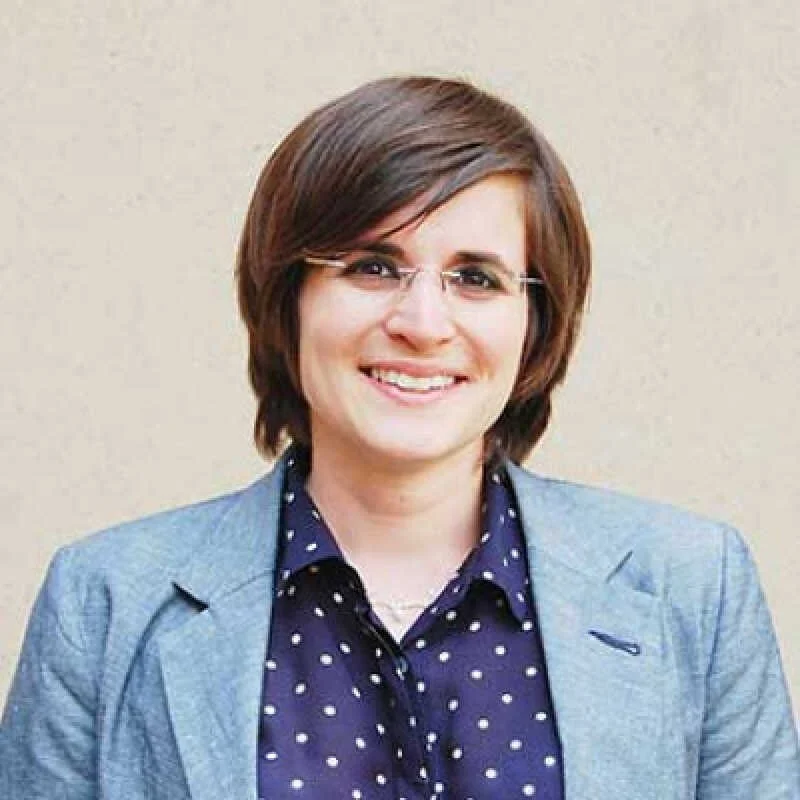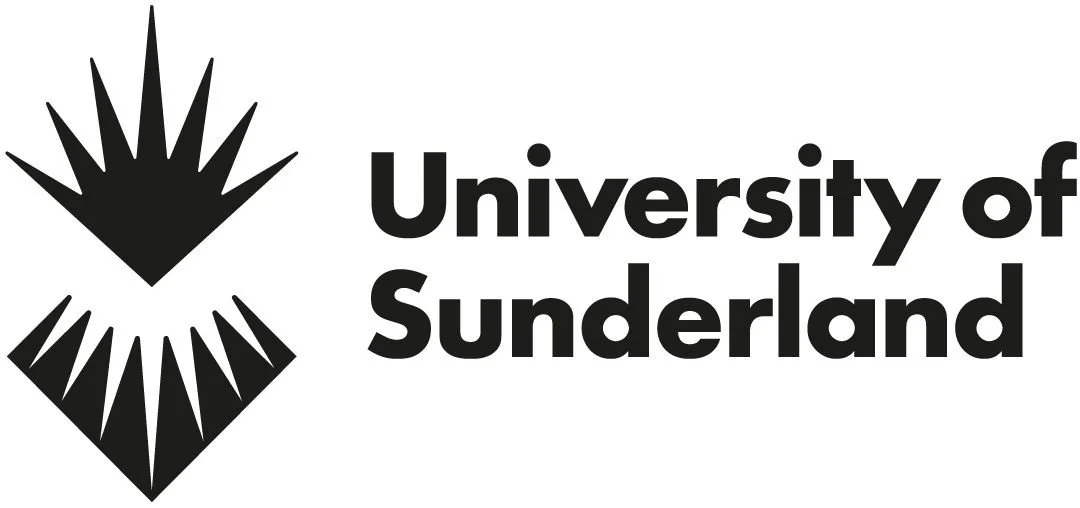
THE VOLUNTEER LEGACY MYTH: WHY INSPIRATION FADES WITHOUT THE RIGHT POST-EVENT PLAN
Mega-events promise to ignite long-term community spirit, but without clear pathways and partnerships, that spark dies quickly—just like it did after London 2012.
Dr Niki Koutrou (University of Sunderland (London), UK).
EXECUTIVE SUMMARY
· London 2012 promised to create a lasting culture of volunteering, but enthusiasm faded due to weak legacy planning.
· Mega-events routinely sell the illusion of long-term social impact, yet most fail to deliver sustained volunteer participation.
· Volunteers want more than visibility; they need meaningful roles, skills development, and pathways to continued engagement.
· Without structural inclusion—addressing barriers like cost, access, and targeted outreach—volunteering legacies will remain inequitable.
· Future events must integrate legacy from the outset, partner with local organisations, and invest long after the final whistle to ensure real, lasting community benefits.
INTRODUCTION
What happens when the Olympic flame burns out—but the promises made to volunteers fade even faster?
In 2012, over 70,000 Games Makers helped bring London’s Olympics to life. They weren’t just logistical cogs; they were the smiling faces of Britain’s global moment, dressed in their iconic purple uniforms, symbolising pride, purpose, and community. More than a third were first-time volunteers, lured by the promise that London 2012 wasn’t only about sport—it was about building a nationwide culture of volunteering (Dickson & Benson, 2013; Koutrou et al., 2016; Nichols & Ralston, 2015)
The stakes were high. Event organisers and politicians alike declared that the Games would spark lasting social change. Legacy wasn’t just a buzzword; it was embedded in the very bid to host the event. For the first time, a mega-event pledged to grow the UK's volunteer culture, deepen community participation, and leave behind more than empty stadiums (Lockstone-Binney et al., 2016).
But more than a decade on, a sobering reality has emerged: volunteering rates have fallen, many Games Makers never volunteered again, and the grand promises of an enduring volunteering legacy have largely withered. Some volunteers walked away feeling like “just another pair of hands.” Others struggled to find clear pathways to stay involved. The legacy, it seems, was left to chance (Koutrou, 2021).
This raises a critical question for today’s event organisers: Can mega-events truly ignite long-term community engagement, or are they destined to deliver short-lived inspiration that disappears with the closing ceremony?
“London 2012 promised a lasting volunteering legacy—but for many Games Makers, the inspiration ended when the flame went out.”
THE PROBLEM AND/OR OPPORTUNITY
The problem is simple but stubborn: mega-events repeatedly promise to inspire long-term community engagement, yet they rarely deliver. London 2012 was a watershed moment, the first Olympics to position volunteering as a core legacy goal. But while the Games Makers became a global symbol of enthusiasm and civic pride, little was done to translate their momentum into sustained participation beyond the event (Koutrou, 2021).
This is not unique to London. Across the world, from Rio to Tokyo, major events often spark short-term volunteerism—only to see rates decline once the cameras leave. The missed opportunity is profound.
Events hold unique power to mobilise diverse groups, build social capital, and develop human skills. But without clear pathways, partnerships, and long-term investment, these gains evaporate (Chen et al., 2023; Koutrou & Kohe, 2025).
Future hosts—from LA to Brisbane—face a critical choice: treat volunteer legacy as an afterthought, or embed it into the DNA of event planning, ensuring that civic pride, skills, and participation endure long after the final whistle.
The world is facing a volunteering crisis. Across the UK and many other nations, formal volunteer participation is in decline—shrinking community resources, weakening social cohesion, and leaving critical gaps in sectors from sport to health. Meanwhile, cities continue to invest billions in hosting mega-events, promoting them as catalysts for social good (Koutrou & Kohe, 2025).
This contradiction cannot be ignored. As future hosts prepare for global spectacles like the LA 2028 Olympics and the FIFA World Cup, they risk repeating London’s mistake: delivering a spectacular event but squandering the chance to build a resilient, skilled, and diverse volunteer workforce.
WHY DOES THIS MATTER NOW?
The COVID-19 pandemic has only deepened the urgency. Communities need connection, purpose, and participation more than ever. Events offer a rare, high-profile opportunity to inspire civic action—but only if legacy is planned, resourced, and integrated from day one.
Failing to do so isn’t just a missed opportunity—it’s a costly cycle of hype, short-termism, and disengagement that cities can no longer afford.
HOW DOES THIS ADD TO WHAT WE ALREADY KNOW?
For decades, mega-event organisers have sold the idea of an “inspiration effect”—the belief that simply witnessing or participating in an event will ignite long-term positive change. From boosting sport participation to volunteering rates, this narrative has underpinned Olympic bids, political speeches, and legacy strategies (Chen et al., 2023; Hayday et al., 2019).
But the evidence tells a different story. Research from London 2012 and beyond reveals that inspiration alone is fleeting. Without clear pathways, support structures, and partnerships, even the most enthusiastic volunteers drift away.
London’s Games Makers were celebrated during the event but left without meaningful routes to continue contributing (Koutrou & Duignan, 2025; Koutrou & Kohe, 2025).
This challenges the comfortable assumption that legacy “just happens.” Instead, the London case adds to a growing body of research showing that legacies must be deliberately designed, embedded into governance, and resourced long after the closing ceremony. Legacy is not an organic outcome—it is a managed process requiring political will, community partnerships, and strategic planning (Koutrou & Duignan, 2025).
Key Arguments
-
Despite the fanfare around London 2012's promised volunteer legacy, organisers failed to embed clear, actionable legacy pathways into the event's design. The result? A short-term surge in volunteering enthusiasm, followed by a steady decline. Research consistently shows that unless legacy is planned from the outset—and resourced through to post-event transitions—it simply fades. The late launch of Join In, the UK’s volunteer legacy body, exemplifies this misstep. Future hosts must plan legacy like they plan logistics: deliberately, systematically, and with measurable targets from day one (Chen et al., 2023; Koutrou & Duignan, 2025; Lockstone-Binney et al., 2016)).
-
Games Makers spoke proudly of their purple uniforms—but many left the experience feeling like “just another pair of hands.” When volunteer roles are transactional—focused solely on filling gaps—they erode motivation. People volunteer to make a difference, build connections, and develop skills. London 2012’s oversight was failing to connect individual aspirations with meaningful contributions. Events must design roles that respect volunteers’ skills, foster personal growth, and celebrate impact beyond event delivery (Koutrou, 2021).
-
London 2012 promised to reflect the UK’s diversity, but volunteer data revealed stark inequalities. Ethnic minorities, people with disabilities, and those from lower-income regions were underrepresented, partly due to structural barriers—complex applications, high travel costs, limited outreach. True inclusivity demands proactive recruitment, tailored support, and partnerships with community organisations who understand underrepresented groups. Without this, events risk replicating societal inequalities under the guise of civic participation (Chen et al., 2023; Koutrou & Duignan, 2025).
-
A major event can ignite enthusiasm—but it is the existing volunteer sector that sustains it. London 2012 organisers underutilised the UK’s established volunteering networks, limiting the Games’ ability to connect new volunteers with ongoing opportunities. In contrast, Birmingham 2022’s United By 2022 initiative shows how integrating with local volunteer organisations enhances legacy. Future hosts must view community groups not as peripheral partners, but as essential infrastructure for lasting change (Chen et al., 2023; Koutrou & Kohe, 2025).
-
Legacy is not self-sustaining. Funding, governance, and partnerships must outlive the event itself. Join In, created to continue London 2012’s volunteer legacy, saw its funding withdrawn within two years—undermining any momentum. By comparison, Birmingham’s extended funding for its volunteer legacy body illustrates how sustained investment protects social impact. Policymakers and organisers must resist the temptation to cut legacy funding post-event; doing so undermines both public trust and long-term community benefits (Chen et al., 2023; Koutrou & Duignan, 2025).
CONCLUSIONS
The promise of a lasting volunteering legacy from London 2012 remains one of the greatest missed opportunities in mega-event history. At its peak, the Games Makers were a global symbol of civic pride, representing the very best of community spirit, diversity, and national enthusiasm. Yet when the flame was extinguished, so too was much of the momentum that could have transformed volunteering in the UK (Lockstonne-Binney et al., 2016; Koutrou et al., 2016).
This failure is not unique to London—but it is preventable. Around the world, future event hosts stand at the same crossroads. The evidence is clear: legacy does not happen by default. It is not created by slogans, celebrity endorsements, or hope. It requires long-term investment, integrated partnerships, inclusive recruitment, and—above all—deliberate, measurable planning embedded from the outset (Chen et al., 2023; Koutrou & Duignan, 2025).
Communities today face profound social and economic challenges: loneliness, inequality, stretched public services, and declining civic participation. Mega-events, with their global reach and public visibility, offer a rare platform to address these challenges. But the window of opportunity is short—and once closed, the cost of inaction is difficult to reverse.
The next wave of global events, from LA 2028 to the World Cup, must learn from London’s shortcomings. We have seen what happens when legacy is treated as an afterthought. The time to act is now—to ensure volunteers are not just visible faces of the event, but catalysts for lasting, inclusive, community transformation.
“Legacy doesn’t happen by default—it demands deliberate, long-term investment to turn volunteers into catalysts for lasting community change.”
PRACTICAL ACTIONS
To turn the rhetoric of volunteer legacy into reality, organisers, policymakers, and community leaders must move beyond vague aspirations. Legacy requires structure, investment, and accountability. Based on London 2012’s lessons, here are five clear actions to deliver meaningful, lasting volunteer legacies from major events:
1. Embed Volunteer Legacy from the Start
Legacy cannot be retrofitted once the spotlight is on. It must be written into bids, planning documents, and contracts from the earliest stages. Host cities should establish measurable targets for post-event volunteer engagement, with clear responsibilities assigned to delivery partners. For example, Birmingham 2022 built legacy planning into its structure early, helping to extend momentum beyond the Games. Future events should replicate this by setting quantifiable goals for volunteer diversity, skills development, and community transitions.
2. Design Volunteer Roles with Meaning and Progression
Volunteers are motivated by purpose, not just perks. Organisers must go beyond uniform distribution and create pathways that build skills, foster social connection, and enable ongoing participation. Volunteer profiles should be matched to roles wherever possible, with options for progression or referrals into community groups, other events, or even employment. Post-event surveys, feedback mechanisms, and recognition programmes can reinforce this sense of value and belonging.
3. Remove Structural Barriers to Participation
Inclusivity requires more than slogans. Organisers must design volunteer recruitment with accessibility and equity in mind. This includes simplifying application processes, offering alternative formats for people with disabilities, providing travel or accommodation support for those outside major cities, and engaging directly with underrepresented communities through trusted local partners. Without these measures, events risk entrenching inequality rather than broadening participation.
4. Partner with the Local Volunteer Sector Early
The most effective legacy strategies leverage existing community infrastructure. Local volunteer centres, charities, and grassroots organisations possess deep knowledge of their communities and can help design inclusive, accessible programmes. These partnerships should start in the planning phase and extend beyond the event, with shared data, coordinated referrals, and joint capacity building. The fragmented approach seen in London 2012, where volunteer networks were underutilised, should serve as a cautionary tale.
5. Fund Legacy Bodies for the Long Term
Volunteer legacy organisations need stable, multi-year funding. Join In, created after London 2012, suffered from late establishment and early funding cuts, undermining its ability to deliver on promises. Legacy bodies should be operational before the event begins and supported with ring-fenced resources that extend for at least five years post-event. Birmingham’s United By 2022 shows the value of sustained investment, but future hosts must scale and institutionalise this approach.
Together, these actions offer a practical, achievable roadmap for translating the energy of major events into enduring, inclusive volunteer legacies. The opportunity is there—but only for those willing to plan, invest, and partner with communities beyond the event’s final curtain.
IMPLEMENTATION CHALLENGES
Delivering a meaningful volunteer legacy is not without obstacles. First, the political and financial cycles of mega-events often prioritise short-term delivery over long-term social outcomes. Legacy initiatives can be sidelined once the event concludes, especially when funding dries up or new administrations shift priorities (Nichols & Ralston, 2015; Lockstonne-Binney et al., 2016).
Second, aligning the interests of multiple stakeholders—governments, organising committees, volunteer groups, and community organisations—is inherently complex. Competing agendas, fragmented structures, and inconsistent communication can undermine well-intentioned plans (Koutrou & Kohe, 2024).
Finally, overcoming deep-rooted inequalities in volunteering requires more than event-specific interventions. Broader societal barriers—economic exclusion, limited access to skills development, and systemic underrepresentation—persist long after the closing ceremony. Event organisers alone cannot solve these challenges, but they can play a catalytic role if they commit to integrated, community-driven approaches (Koutrou & Duignan, 2015).
Without confronting these structural realities, even the most ambitious volunteer legacy plans risk falling short.
REFERENCES
Chen, S., van Zanten, J. V., Quinton, M., Lee, M., Ali, T., Heyes, A., ... & Karamani, M. (2023). Perceptions of the Birmingham 2022 Commonwealth Games: Legacies for Individuals and Communities from Disadvantaged Backgrounds.
Dickson, T. J., & Benson, A. M. (2013). London 2012 games makers: Towards redefining legacy. Policy: Creating a lasting legacy from the 2012 Olympic and Paralympic Games, 1-7. In Meta-evaluation of the impacts and legacy of the London 2012 Olympic & Paralympic Games: Related Research. UK Department for Culture, Media and Sport.
Hayday, E. J., Pappous, A., & Koutrou, N. (2019). The role of voluntary sport organisations in leveraging the London 2012 sport participation legacy. Leisure Studies, 38(6), 746-761.
Koutrou, N. (2021). Enhancing volunteer skills through mega sport events: Evidence from London 2012 Olympic Games. In K. Homes, L. Lockstone-Binney, K.A. Smith, & R.shipway [Eds.], The Routledge handbook of volunteering in events, sport and tourism (pp. 161-173). Routledge.
Koutrou, N., & Duignan, M. (2025). Has the London 2012 Volunteering Programme Engendered a Sustainable and Wider Volunteering Legacy in the UK? In Duignan, M., [Ed.]. Events and Society: Bridging Theory and Practice, 5. Routledge.
Koutrou, N., & Kohe, G. Z. (2025). Sustainability, the Athens Marathon and Greece’s sport event sector: lessons of resilience, social innovation and the urban commons. Sport in Society, 28(1), 57-82.
Koutrou, N., Pappous, A., & Johnson, A. (2016). Post-event volunteering legacy: Did the London 2012 Games induce a sustainable volunteer engagement?. Sustainability, 8(12), 1221.
Lockstone-Binney, L., Holmes, K., Shipway, R., & Smith, K. A. (2016). Evaluating the volunteering infrastructure legacy of the Olympic Games: Sydney 2000 and London 2012. International Olympic Committee, Olympic Studies Centre Final Report.
Nichols, G., & Ralston, R. (2015). The legacy costs of delivering the 2012 Olympic and Paralympic Games through regulatory capitalism. Leisure Studies, 34(4), 389-404.
AUTHOR(S)
Dr Niki Koutrou, Associate Professor, University of Sunderland (London), UK.
Niki Koutrou (PhD) is an Associate Professor of sustainable sport management and Research & Innovation Lead at the University of Sunderland in London. Her research expertise lies in the interrogation of sustainable sport and physical activity programmes, civil society sustainability and volunteering, and social legacies of mega sport events including the Olympics. Her current research collaborations include the European Sports NGO (ENGSO) where she leads research and impact evaluation for several Erasmus+‐funded pan‐European sport projects that aim to develop volunteer management standards and cultivate pro‐environmental attitudes and change management in non‐profit sport organisations. She is also involved in the SHARE 2.0 initiative of the European Commission for knowledge exchange in European sport organisations.
Disclaimer
The views and insights expressed in this article are those of the author(s) and reflect their research and professional expertise. They do not represent the views of the Centre for Events & Festivals CIC or its partners.






